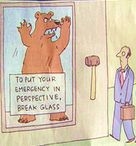My total cholesterol level is 196. My HDL is 60. My LDL is 123, and my Triglycerides are 63. I'll admit I am totally confused by this because my doctor told me 3 months agao that if my cholesterol stayed under 200, he would not put me back on the statin, yet he did. I don't eat refined, processed sugar, but you are correct that I do watch how much fruit and starch I eat. My dietician gave me guidelines to follow, and I use the portion sizes she recommended. I would also add that I'd been advised to eat veggies (no starchy) if I'm hungry. Keep in mind I eat roughly 1100-1200 calories a day at this point in time. I also happen to like oatmeal, and since I have to have some kind of starch or whole grain, I tend to gravitate toward oatmeal or popcorn for my whole grains/starch. I feel better when I eat them than when I don't. As for eggs, I just really don't like them that much, although my dermatologist told me to eat more eggs, and yes, she recommended the whole egg too. I also eat a serving of walnuts each and every day because my dietician told me they protect the heart. If I can't eat tuna more than once a week, I need to eat something else, as I' not totally convinced that fish oil capsules are beneficial for me.Janknitz wrote:I'm interested in your entire cholesterol profile--HDL and Triglycerides, too. Are you willing to share them?
As others have pointed out, total and LDL cholesterol are not good predictors of cardiovascular risk. About 50% of people who have a heart attack or stroke have high total and LDL cholesterol, but that means 50% have LOW total and LDL cholesterol. So do you really accomplish anything by having low total and LDL cholesterol?
As we age, our cholesterol should increase, and studies have shown that higher total and LDL numbers are PROTECTIVE when we age. All cause mortality--death from cancer, infection, and other illnesses, increase as cholesterol decreases as cholesterol increases, while cardiac deaths don't really increase as cholesterol increases (The drug companies make the relative risk increase sounds very dramatic, but the absolute increase in cardiac deaths is VERY LOW--a fraction of 1% for someone with higher cholesterol who has not already had a heart attack). Hmmm. . .
For a fascinating way to look at this, consider the "numbers needed to treat" (NNT)--how many people have to take a drug for how long so that a heart attack will be prevented? According to this http://www.thennt.com/nnt/statins-for-h ... t-disease/ 60 people have to take a statin drug for 5 years to prevent 1 heart attack. Meanwhile, 1 in 50 of those same people developed diabetes and 1 in 10 had other harms like muscle damage. (Hey, wait, Isn't the heart a muscle???).
It's important to look at your cholesterol panel ratios. In particular, a study by Harvard Medical School back in 1997 said that those with a higher ratio of triglycerides to HDL had 16 times the risk of heart attack as those with the lowest ratio of triglycerides to HDL. http://circ.ahajournals.org/content/96/8/2520.abstract
I suspect from the fruit you eat and your daily bowl of oatmeal, your triglycerides are probably high. You want that ratio of triglycerides to HDL to be below 2.0. You say you "avoid sugar"--but fruit and oatmeal ARE sugar--enzymes in our mouth immediately begin to break down the starch in things like oatmeal into simple sugars, while fruit is sweet because it contains fructose and glucose. These are carbohydrates. Carbohydrate intake is directly related to HDL so if your HDL is high (lab norms say below 100 is good, but it really should be below 50 and HDL should be above 60 for a man), then you might consider reducing (you don't have to completely eliminate it) the fruit you eat. Fish oil will help bring your HDL up. Good quality fish oil does not smell or cause fish burps. Trader Joe's brand is very reasonably price, and I've punctured the capsules to smell to be sure the fish oil is not rancid.
There are some very good studies that have shown that dietary saturated fat does NOT increase dietary cholesterol. So I doubt very much it was the butter and cream your dad succumbed to, more likely his inactivity you mention and possibly he ate too much sugar along with his butter and cream? You should not fear egg yolks or butter from pastured animals. They contain vital nutrients you can't get very well elsewhere. Egg YOLKS are a good source of Vitamin A and choline--90% of Americans are deficient in choline. Butter (from pastured cows) contains vitamin K2, which prevents heart disease by making sure the calcium in your body stays in your bones instead of in your bloodstream. It is much more likely to prevent cardiovascular disease than the statins you take. If you aren't eating saturated fats like egg yolks and butter, you may be eating soy and vegetable oils which are highly inflammatory and inflammation causes--heart disease...
You sound like you are on the right track. In your place, I would replace some of your fruit servings of non-starchy vegetables (they taste a lot better with BUTTER on them!) and find something besides oatmeal to eat for breakfast (BTW, oatmeal is only good at reducing cholesterol COMPARED to other crappy breakfast cereals. It is not an effective cholesterol reducer--otherwise they'd be prescribing that instead of statins). How about real, whole eggs?
Beware, that if you manage to get your HDL up, your total cholesterol will go up because of it (HDL is part of the equation for determining total cholesterol). Your doctor will think that's a bad thing and want to give you MORE statins. But hopefully by then you will understand that increased HDL and decreased triglycerides are a good thing, your LDL and total are not dangerous, and it makes no sense to use a drug to reverse good health.
Two videos you may find very informative:
How Bad Science and Big Business Created the Obesity Epidemic https://www.youtube.com/watch?v=3vr-c8GeT34
Fathead, the Movie https://www.youtube.com/watch?v=evcNPfZlrZs (This one is funny, too!)
Also, when I had my gallbladder surgery in May, the anesthesiologist told me that according to my EKG, I had had a mild heart attack sometime in the past - so mild that I didn't even know when or where I had it.
It's just confusing to me, and I have sent an e-mail to my doctor for some kind of clarification. I will also watch those videos and see what clarification they can give me as well.















